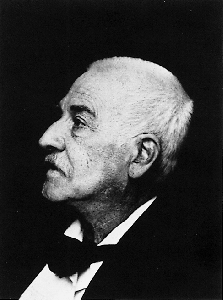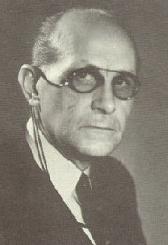A Quote by Noah Webster
Tyranny is the exercise of some power over a man, which is not warranted by law, or necessary for the public safety. A people can never be deprived of their liberties, while they retain in their own hands, a power sufficient to any other power in the state.
Related Quotes
It is unfortunately none too well understood that, just as the State has no money of its own, so it has no power of its own. All the power it has is what society gives it, plus what it confiscates from time to time on one pretext or another, there is no other source from which State power can be drawn. Therefore every assumption of State power, whether by gift or seizure leaves society with so much less power; there is never, nor can be, any strengthening of State power without a corresponding and roughly equivalent depletion of social power.
Whensoever, therefore, the legislative shall transgress this fundamental rule of society, and either by ambition, fear, folly, or corruption, endeavour to grasp themselves, or put into the hands of any other, an absolute power over the lives, liberties, and estates of the people, by this breach of trust they forfeit the power the people had put into the hands... and it devolves to the people, who have a right to resume their original liberty, and... provide for their own safety and security.
I have never been able to conceive how any rational being could propose happiness to himself from the exercise of power over others... An honest man can feel no pleasure in the exercise of power over his fellow citizens.... Power is not alluring to pure minds and is not with them the primary principle of contest.
A state that denies its citizens their basic rights becomes a danger to its neighbors as well: internal arbitrary rule will be reflected in arbitrary external relations. The suppression of public opinion, the abolition of public competition for power and its public exercise opens the way for the state power to arm itself in any way it sees fit.... A state that does not hesitate to lie to its own people will not hesitate to lie to other states.
The President can exercise no power which cannot be fairly and reasonably traced to some specific grant of power in the Federal Constitution or in an act of Congress passed in pursuance thereof. There is no undefined residuum of power which he can exercise because it seems to him to be in the public interest.
The seventeenth century is everywhere a time in which the state's power over everything individual increases, whether that power be in absolutist hands or may be considered the result of a contract, etc. People begin to dispute the sacred right of the individual ruler or authority without being aware that at the same time they are playing into the hands of a colossal state power.
When government is invested with money power it rises above the citizen and under the profession of protecting him may actually constitute the greatest threat to his well-being and safety. The power which control of the money system gives to government to interfere in and direct and even take the life of the individual should not exist on this earth. No man or group of men is warranted in holding this terrible power over fellow men.
Our minds tell us, and history confirms, that the great threat to freedom is the concentration of power. Government is necessary to preserve our freedom, it is an instrument through which we can exercise our freedom; yet by concentrating power in political hands, it is also a threat to freedom. Even though the men who wield this power initially be of good will and even though they be not corrupted by the power they exercise, the power will both attract and form men of a different stamp.
For loving, working, and creative people to throw off the yoke of power it is necessary to abolish power itself, not merely to make the yoke comfortable. Where some have power, others do not, and the two classes persist. A free society is where all have power-power over and responsibility for their own lives, power and reason to respect the lives of others. This is also a society without classes, a society of human beings, not rulers and the ruled.
The Legislative cannot transfer the Power of Making Laws to any other hands. For it being but a delegated Power from the People, they who have it, cannot pass it over to others. The People alone can appoint the Form of the Commonwealth, which is by Constituting the Legislative, and appointing in whose hands that shall be.
It is left... to the juries, if they think the permanent judges are under any bias whatever in any cause, to take on themselves to judge the law as well as the fact. They never exercise this power but when they suspect partiality in the judges; and by the exercise of this power they have been the firmest bulwarks of English liberty.


































